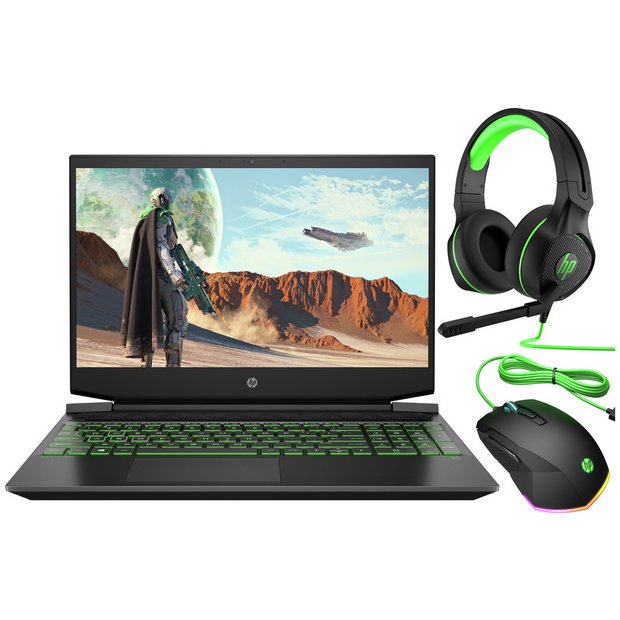On average, a gaming laptop lasts between 3 and 6 years. Of course, this depends on several factors, such as usage. Besides, gaming is one of the most intensive and demanding tasks a laptop can handle. This means that as a hardcore gamer, your laptop’s lifespan is likely shorter than that of a casual gamer. In addition, mid-range gaming laptops last for around 3 to 4 years, while high-end and expensive laptops have a maximum of 6 years.
Gaming laptops are built to last longer than standard laptops since they have better internal components. When a gaming laptop outlives its maximum lifespan, it doesn’t necessarily mean it stops working. Instead, the laptop becomes incompatible with newer gaming features, consequently impairing the overall gaming experience.
Table Of Contents
How Long Do Batteries in a Gaming Laptop Last?
A gaming laptop’s battery life depends on the device’s quality. On average, mid-range gaming laptops last for around 3-4 years, while high-end ones last between 4-6 years. However, with adequate care and maintenance, they can last longer. An ordinary laptop’s battery lasts longer than a gaming laptop’s. Regular laptops don’t have power-hungry hardware components.
Related: Gaming Laptop vs. Desktop: Which Should I Choose?
Factors Affecting the Lifespan of Your Gaming Laptop
As highlighted earlier, several factors influence the lifespan of a gaming laptop. They include quality, usage, and hardware. Let’s evaluate each further:
Quality
While all gaming laptops are designed for high performance, they are not built similarly. Some have better body components, such as cooling systems, that make them long-lasting than their counterparts.
For example, most gamers often prefer Alienware and Razer gaming laptops as they have superior craftsmanship, making them last longer than most in the market.
That said, top-range Razer gaming laptops last slightly longer than mid or low-range Alienware gaming laptops. They also have a more durable battery life than Alienware laptops. This difference is in build quality since a cheaper gaming laptop usually compromises the quality of its components.
Usage
Even though gaming laptops are built for performance, they eventually wear out regardless of the usage period. Using your laptop for long gaming sessions will wear out its parts faster than occasional short gaming sessions. Additionally, if you use your laptop for other purposes besides gaming, for example, storing large files and working on heavy-duty projects, it’ll wear out faster.
Hardware
A gaming laptop’s durability is pegged on its hardware components. These components include; a central processing unit (CPU), graphics processing unit, and random-access memory (RAM).
What Makes a Good CPU for a Gaming Laptop?
The CPU is the essential component of any computing device. You need a gaming laptop with a high-performance CPU to play games such as first-person shooters and online multiplayer games. When your laptop’s CPU starts to wear out, it manifests itself through lag and slower loading times.
Most gaming laptops come with either Intel or AMD CPUs. In particular, the Intel Core i5 and Core i7 of the 11th generation are the most reliable Intel processors for gamers, while the Ryzen 5 and 9 are the ideal AMD gaming processors. You should also consider the number of cores in a laptop’s processor. Generally, the higher the number of cores, the higher the performance. The standard dual-core processor can be frustrating, which is why Hexa and Octa-core processors are recommended for gaming.
How Long Does a Gaming GPU Last?
Gaming laptops rely heavily on GPU to process the visual details of a game. A modest GPU lasts about 3 to 5 years before it becomes outdated to process newer game upgrades. When the GPU is obsolete, you’ll notice your games’ visual quality and resolution declining.
Two of the most trusted GPU manufacturers are NVIDIA and AMD. Gaming laptops with these GPUs tend to last longer and render high-resolution videos and images for newer games. When choosing a laptop’s GPU, check its frame rate. Similar to a CPUs number of cores, a GPU’s frame rate is directly proportional to its performance. A high frame rate translates to high-resolution rendering. A GPU with 60 frames per second (fps) renders more high-quality images than one with 30 fps.
As for the RAM, the ideal size for a gaming laptop is 8GB for a smooth gaming experience. RAM is the only component of a gaming laptop that’s easy to upgrade. So, you can buy a laptop with a smaller RAM size, say 4GB, and later upgrade it to 8 or 16GB.
Tips To Make Your Gaming Laptop Last Longer
Although all gaming laptops inevitably wear out with age, there are several things you can do to prolong the lifespan of your laptop.
Re-apply Thermal Paste
Thermal paste is applied to the CPU by the manufacturer to allow for efficient heat dissipation. Over time, this paste melts, resulting in the CPU overheating, eventually making your laptop lag while reducing the battery life.
For gaming desktops, the thermal paste is applied after every few years. However, since a gaming laptop has a less efficient cooling system, the paste should be re-applied annually or twice a year. Besides, in most cases, the paste applied by the manufacturer tends to be thin and melts faster. So, re-applying with a high-quality and thick thermal paste is a great way to improve your laptop’s lifespan.
Clean Your Laptop
Due to a laptop’s limited interior space, dust particles and other small debris tend to collect around the fan, vents, and motherboard. As a result, these particles restrict airflow, causing the laptop to overheat. As such, it’s a good idea to clean your gaming laptop regularly, preferably every six months, to improve its longevity and avoid damaging the CPU.
Related: How to Clean a Graphics Card (Simple Steps)
Ideally, you should use a microfiber towel to clean the outer surfaces – the keyboard and monitor. Before cleaning the interior surfaces, check the manufacturer’s manual to see if opening it would void the warranty. If it voided the warranty, you could seek help from a professional. Alternatively, you can use a small vacuum cleaner for cleaning electronics to suck out the dust.
Upgrade Your Hardware
It is good practice to upgrade your laptop’s hardware every few years. In gaming PCs, virtually all components can be upgraded, including CPU, GPU, and RAM. However, in a gaming laptop, only the RAM can be upgraded.
Most laptops don’t allow you to upgrade the CPU or GPU. For the few that do, the process is expensive and complicated. Upgrading or replacing your laptop’s RAM will cost you under $150, and it’s easier. You can even do it yourself! You might also consider upgrading your hard disk drive or solid-state drive.
Tweak Your In-game Settings
Playing your favorite game in ‘ultra-high’ mode certainly offers the best gaming experience. However, it overworks your laptop components, especially when playing for long periods.
Tweaking your game settings by toning down some features can take the strain off your laptop’s hardware, consequently prolonging its lifespan. Besides, there are certain game features you need; when turned off, you’ll barely notice any difference in your gaming experience.
Conclusion
Your gaming laptop’s lifespan depends entirely on its components’ quality. You should prioritize buying a top-range gaming laptop for extended durability. While at it, ensure you run regular maintenance practices such as cleaning and upgrading the software. This way, your gaming laptop will serve you for longer.


